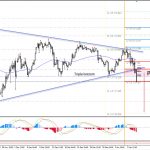Not everyone was delighted by Mario Draghi’s decision on March 10 to begin monetizing corporate bonds: chief among them was Bundesbank president Jens Weidmann whose opposition to unorthodox monetary policies is well known, and whose “Northern Block” was among those voting against the ECB’s QE expansion (Weidmann himself was not among those voting last week). Of course, complaining about it does not mean stopping it, and for three years now the “Germans” on the ECB council have complained loudly even as the ECB is on track to double its balance sheet in the next few years.
And, as is customary, after every dramatic easing step by the ECB, Weidmann takes to the media to express his frustration with the ECB’s ever bolder attempts to recreate Weimar, something the German press has repeatedly made clear is not welcome:


According to Bloomberg, this time Weidmann preempted the next central bank step, namely helicopter money, and warned against starting a discussion about handing out cash to stimulate growth, Funke Mediengruppe reported, citing an interview.
“Helicopter money isn’t manna falling from heaven, but would rip huge holes in central bank balance sheets,” Weidmann, who heads Germany’s Bundesbank, said, according to the newspaper. “The euro area states and taxpayers would pay the bill in the end.”
Dear Jens: in case you have still failed to grasp the greatest stealthy wealth transfer in history, one from the middle class to the 1% rent-seeking financial oligarchy, that is precisely the point!
Weidmann, aware how the ECB’s game ends, warned that “instead of suggesting ever more reckless monetary policy experiments, it would make sense to pause,” Weidmann was cited as saying in German. “Monetary policy is not a panacea, doesn’t replace the necessary reforms in individual countries and won’t solve all of Europe’s growth problems.”














Leave A Comment